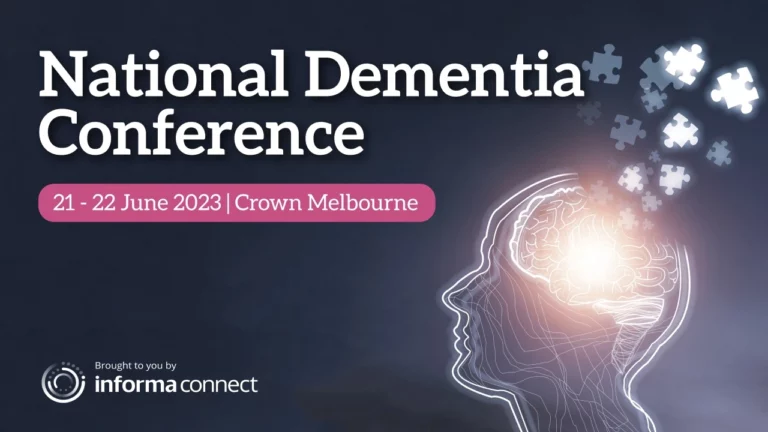Fellowship programs supporting change leaders in aged care
- aged care
- change management
- education and training
- fellowships
- knowledge translation
- leadership
- mentoring
- salutogenesis
The Fellowship programs at DTA all have a common theme – to place the wellbeing of people living with dementia at the heart of care quality.

A clinical care coordinator introduces contrasting crockery – blue plates on white table cloths – at meal times in a dementia unit.
This simple change yields several outcomes; the residents living with dementia stay at the table for longer, more food is consumed, and there is a corresponding reduction in food wastage and weight loss.
At another site, the introduction of weekly visits with local kindergarten students as part of an intergenerational program has many positive outcomes including happier residents, increased interaction, and increased family satisfaction with care.
These are just two Dementia Training Australia Fellowship projects that demonstrate better outcomes for people living with dementia, through the application of evidence-based knowledge to practice.
Fellowships are essentially coaching or mentoring partnerships between DTA and selected ‘champions’ within organisations.
What is a Fellowship Program
A Fellowship Program at DTA aims to address the questions that vex so many of us who want to see quality approaches to care: what does it take to implement contemporary dementia practices, like the ones described above, into care settings?
New evidence-based knowledge is published every day in research and industry journals. An increasing body of research describes how new interventions and ways of working can improve quality of life and care for people living with dementia. However, it’s often said that it takes an average of 17 years for research evidence to reach clinical practice.
Because we know this is usually not the case, we work with change-ready organisations to upskill leadership-ready individuals and create sustainable change, through Fellowships.
Research is rarely accompanied by guidance that describes the ‘how to’ aspect of applying new knowledge into practice within the workplace. And the ‘how to’ is often the difficult part.
Research can also assume that changes will be supported by highly motivated staff with expertise in change management, and resources available to them to translate new knowledge into practice.
These Fellowships are underpinned by a knowledge translation pathway that supports learners to move from ‘knowing’ to ‘doing’. Fellowships are offered to selected organisations within a DTA Tailored Training Package. The organisations that we partner with are change-ready, and prepared to invest in evidence-based practice and developing leaders within their frontline team.
Choosing a Fellow
The Fellow is a workplace or ‘in-house’ leader.
They know their teams; they know who will be early adopters and champions of change, and who will be reluctant to change. They are more likely to understand team perspectives. Fellows essentially become ‘how to’ champions, with support from DTA.
Here’s how it works. The Fellows identify the research evidence that they wish to apply, and consider how it will fit with their working environment. They ask questions like: “Will the change work here” and “Will it work for us in a practical sense”.
Working with DTA
We provide experienced facilitators who mentor the Fellows as they undertake their knowledge translation project. The mentors work with the Fellows over nine to 12 months to help identify the evidence that underpins their project, to plan and implement the change, and finally to evaluate the impact of the change on staff and work processes, people living with dementia and their families. The support we offer has a particular emphasis on supporting the emotional impact of transition and change on staff.
Fellowship Program update
So far we’ve led 25 Fellowship projects, working with 34 Fellows.
Many of the projects have been about improving meal times for residents. At one site, education relating to staff behaviours and interactions results made meal times calm and peaceful, with less stress for staff and residents. At another, people in the more advanced stages of dementia are supported to prepare and cook their own meals three times a week.
The introduction of Montessori-based activities – including activity stations and signage, interactive wall art and role allocation – in a dementia support unit has been evaluated and shown to decrease agitation and other responsive behaviours, decrease antipsychotic use, and increase person-centred care.
While the achievements of the Fellowship projects vary, they all have a common theme – to place the wellbeing of people living with dementia at the heart of care quality.
View a recent case study.
Learning Consultant, Dementia Training Australia
Chris is based at La Trobe University, in Melbourne Victoria.

